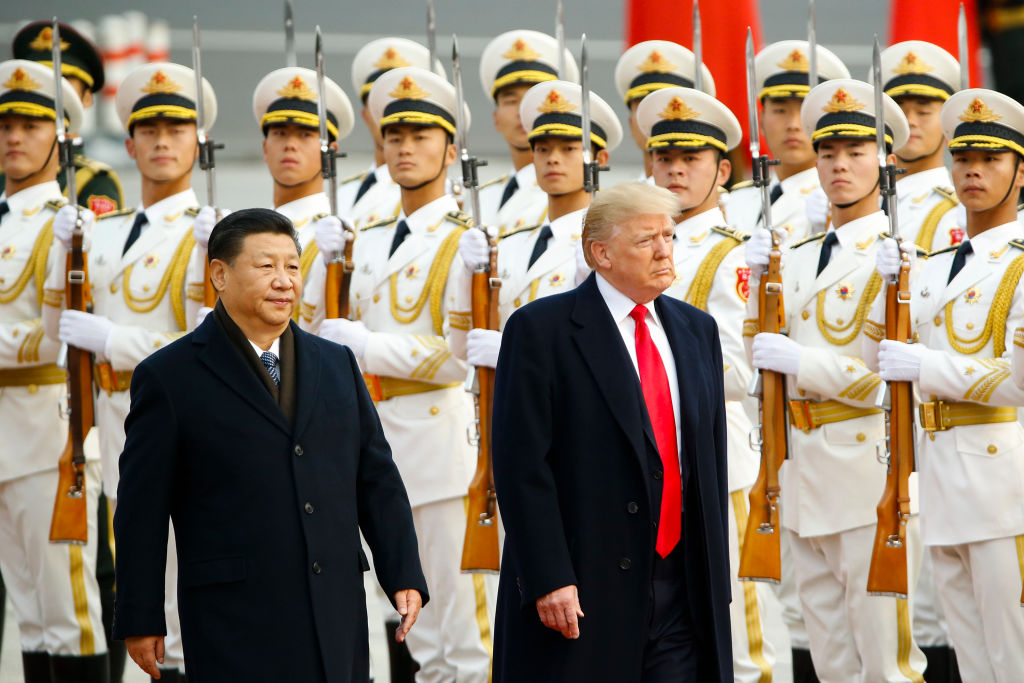The surprise meeting between Xi Jinping and US national security advisor Jake Sullivan earlier today has come at a time of heightened international tensions. It also happens against the backdrop of the pivotal closing months of the American presidential election.
China policy exemplifies the broader realignment of American politics. Three decades ago, there was bipartisan agreement on the matter of integrating the People’s Republic of China into the global trading order. Large, bipartisan majorities in Congress in 2000 supported permanently normalised trade relations with the PRC, which set the stage for China to enter the World Trade Organization. In 2016, much of the Washington establishment cried “protectionism” when Donald Trump pledged to take a more confrontational approach on trade with the rival power. Eight years later, rebalancing the US-PRC relationship is increasingly part of the Beltway consensus.
Reflecting the relative lack of partisan polarisation over China policy, the Biden administration has extended some Trump-era tariffs on Chinese imports. With its benefits for the local production of electric vehicles the Inflation Reduction Act was a Democratic attempt at industrial policy, and the CHIPS Act — another foray into industrial policy — garnered bipartisan support in Congress.
Nevertheless, Trump and Kamala Harris would no doubt approach the diplomatic problem of China differently. So far, Democrats seem more inclined toward targeted industrial-policy efforts, especially around climate, electric vehicles, and semiconductors. Trump has proposed a broader range of tariffs, which Harris has attacked as a “tax” on American consumers — though her exact position on China tariffs is, like so many other issues, undefined. Robert C. O’Brien, who previously served as Trump’s national security advisor, has called for the US to decouple from the PRC, but other business interests in the Republican coalition may be sceptical about such an ambitious break.
Trump’s Jacksonian approach to foreign policy contrasts with the more Wilsonian internationalism that has guided recent Democratic presidents, but it would be a mistake to conflate this with isolationism. While Joe Biden has invoked the importance of international commitments, the escalation of global chaos on his watch has put strains upon many American alliances. Munitions shortages during the Ukraine conflict have, for instance, cast a spotlight on the withered American defence-industrial infrastructure. Conversely, Trump’s “don’t poke the eagle” strategy of targeted retaliation kept many malign international actors on their guard.
One of Trump’s principal talking points has been that America’s allies need to invest more in their militaries. That, too, might be prudent internationalism. When these allies slash their military budgets, they also limit the manoeuvring room of the United States, which has implications for both the Atlantic and Pacific security theatres. Former Trump official Elbridge Colby has insisted that Taiwan needs to boost its defence spending — not just for the island’s own sake but also for the benefit of American security interests. In a potential second Trump term, the White House might double down on efforts to push its allies for more defence spending.
Chinese statecraft will also have a bearing on American policymaking. As the Wall Street Journal recently reported, the PRC has been funnelling resources toward increasing its export capacity — leading some economic analysts to warn about a second “China shock”. This strategy of export-driven growth has prompted many nations to throw up more tariff barriers — as Canada recently announced — to Chinese products, and could prompt further congressional action to counter the PRC’s industrial policies. Perhaps more than Trump’s victory in 2016, the pandemic-era shortages helped transform American thinking about China policy. Beyond partisan politics, events may play a crucial role in the forming of a new foreign-policy consensus.











Join the discussion
Join like minded readers that support our journalism by becoming a paid subscriber
To join the discussion in the comments, become a paid subscriber.
Join like minded readers that support our journalism, read unlimited articles and enjoy other subscriber-only benefits.
Subscribe